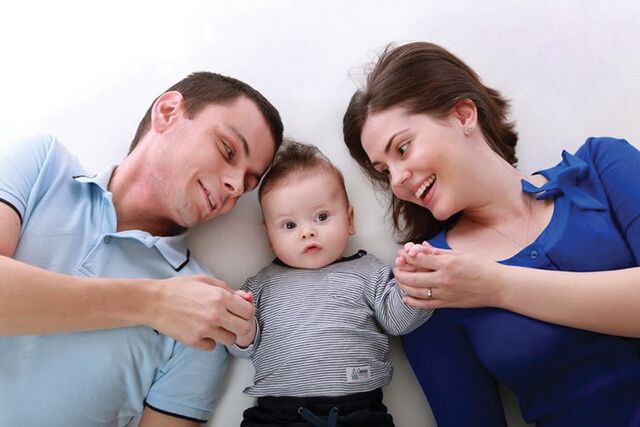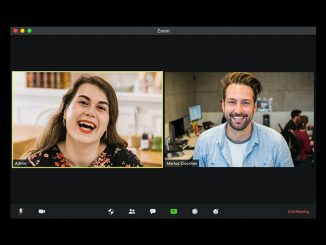
[dropcap]S[/dropcap]tudent parents in DCU struggle to find time to study, integrate with their peers, and support their families while attending the university.
Seán Power said, “I was already in college when my wife became pregnant.”
Power is the father of a little girl, and also a final year journalism student in DCU. His daughter was born in May, just after he had finished the second year of his course.
DCU does not have any extensive policies on parents who are studying at their college, particularly for fathers of young children. There are some policies in place if a student becomes pregnant, and some policies on breastfeeding, however, once the child is born there seems to be no further support for parents.
Power said that now he struggles the most with finding study time while managing his parental duties.
“It can be difficult, particularly because I’m in my final year. I’m in college Monday to Wednesday and for the rest of the week I’m in Arklow, Co Wicklow looking after my daughter when she’s not in her creche, so it can be hard to find study time.” he said, noting also that having support at home has been key to finding the right balance.
Yvonne Keenan-Ross, a multimedia student in DCU, has two kids – Luke (17) and Carla (14).
“I drop the kids to school in the mornings and then I go to college, luckily most of my lectures don’t start until 10… It’s a bit harder than the other students in the class because they don’t have the responsibility of parents,” Keenan-Ross said.
Keenan-Ross has found during her time in DCU that it is difficult to mix with others in the course, as a mature student.
“You will be excluded. There will be nice kids in the class, most of them won’t want anything to do with you. There’s around 60 of us in the class, I’d say a handful of those kids have ever even said hello to me… I’m not asked to participate in anything, not asked into groups,”
There is a Mature Students Society in DCU which meets regularly, mostly to help with the feeling of exclusion often noted by mature students, however not being able to integrate fully with your class is a struggle which has few solutions.
“You think you’re going back to college life and you’re going to have all this social life, the staff in DCU are lovely, it’s not the college experience like when you were leaving school… you just have to put up with the fact that you’re older and that 90 per cent of the people in college don’t want to have anything to do with you.” Keenan-Ross said.
In contrast to DCU’s policies, Trinity College Dublin (TCD) has a full policy on supporting “student parents and pregnant students” that extends much further. In TCD’s policy, they state that “(the) College believes that being or becoming responsible for a child or dependent adult should not, in itself, be a barrier to a student succeeding in, or completing a programme of study.”
TCD has a student parent group that meets during term time, crèche and daycare facilities on campus, and maternal/paternal/adoptive leave. While TCD does not have any specific breastfeeding facilities, they do have a “breastfeeding friendly campus”. In this one regard, DCU does better as it has put in place facilities on campus for breastfeeding.
These breastfeeding facilities were of course little help to Power.
“The first 2 years of college were very difficult for me as I went through some extenuating circumstances… I really wish I could have been involved with the college paper, radio, societies… just really have been immersed in the college life but unfortunately that part was out of my control,” he said.
All DCU students, including parents who are studying, can avail of DCU student supports. These include counselling, which has a reputation for its long waiting lists and a lack of support for more serious and diverse mental health issues. There are also online self-help resources, and workshops on campus covering multiple topics aimed to support your mental health. The DCU website also links to external supports students can access.
“Thankfully my wife is supportive and helps me so much when she’s not in work… As long as you have the support and help from your family and friends it will truly fly by.”
If you do, however, become pregnant while studying at DCU there is some structure to create plans to accommodate for how your life may change and how your studies may be affected.
“A student who becomes pregnant during the course of her studies is advised to consult with a Student Advisor in the Student Advice Centre… to discuss all aspects (academic, personal and financial) of her pregnancy.” states the DCU Student Pregnancy Policy.
The policy does suggest deferring as an option, and says “The University will respect the student’s wishes as far as this is practicable….”. Risk assessments are asked to be carried out for students involved in strenuous activity or lab work in their programme.
DCU could benefit from further daycare facilities for young children, as in DCU for health & safety and to avoid disruption of classes or study, students are not technically permitted to bring a baby into classes or areas where other students could be disturbed. The DCU Student Pregnancy Policy is only reviewed every five years, with the most recent revision in 2018.
DCU does have some policies in place also to support students financially through the Higher Education Authority (HEA) which they say “may cover fees in a repeat year where evidence of complications in pregnancy are provided” however they also say the student must investigate this herself.
As for first-hand advice for parents who are studying, Seán Power said “I’d tell any other parent who was thinking of returning to education that it’s so worthwhile… I decided to return because it’s so important for me to get this degree for many reasons, namely that it will hopefully help me get a full-time job and provide for my family.”.
“I’d just advise new parents to do what I did and defer for one year to give yourself time to become accustomed to parenthood because it’s certainly a shock to the system at first!” Power said, saying that deferring was the best option for him at the time.
Keenan-Ross believes that it is important to be passionate about what you choose to study. “You get into a routine and it just gets easier if its what you want to do, it might be a good idea to do a PLC first just to get you back into the swing of things, to give you an idea academically of what’s required of you before you go back in and do a degree,” she said.
“If you don’t love it you won’t be able to commit to it, you can only make those sacrifices if you’re doing something you’re really enjoying doing.”.
Béibhinn Thorsch
Image Credit: WikiMedia



